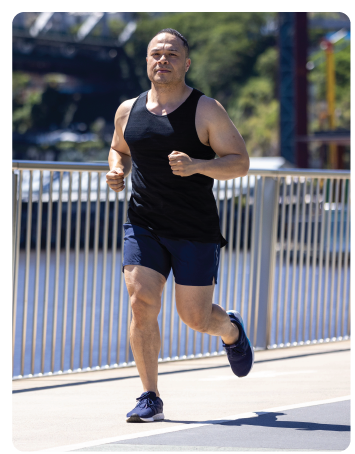Perfect Your Pacing with the
Best Pace Calculator
If you're new to running, it's easy to rush out the door only to find 10 minutes later that you've depleted your fuel tank. You start breathing deeply and drastically slow down if not completely stop. It happens to the best of us!
Finding your ideal running speed is an excellent approach to completing the distance. Maintain a constant pace so you may increase your mileage and cross the finish line.
So, what do you need to know?
That's where the best pace calculator comes in. A pace calculator is a simple but beneficial tool for training. You can use the running pace calculator to determine your pace.
Running Pace Calculator
What is a pace calculator?
In simple terms - a pace calculator is a tool to calculate your pace. You may enter a recent race time or a target time for a specific distance, and the programme will compute corresponding paces.
Have you ever set a goal finish time and wondered what pace you'd need to maintain to achieve that?
A pace calculator can help you calculate the following:
- You're pace if you have a set finish time for a marathon or a run around the neighbourhood.
- The distance you ran.

Why use a pace calculator?
- Tracking your pace and how it varies over time may help you assess your performance and determine whether or not your fitness efforts are paying off. You may need to know your pace when entering a marathon or race. You can do the calculation yourself or use our pace and distance calculator if you like.
- It is especially beneficial for persons who routinely exercise. You may use the jogging pace calculator not just while you jog but also when you bike, skate, or participate in any other sport that needs you to cover a certain distance.
How does the pace time calculator work?
Getting ahead of the game and running at the start is so simple. You're fired up and motivated. It comes as no surprise. However, as we all know, this only sometimes ends well. You wind up walking or not travelling as far as you intended. It might be disheartening.
So, how do you calculate your running pace?
All you need to do is:
- How many kilometres have you moved
- How many minutes it took
The calculator will calculate your average speed per kilometre or mile and pace in minutes per kilometre or mile.
The calculator will also use this information to estimate your race time. The race time is an adjusted estimate that accounts for the fact that quicker paces cannot be sustained for as long as slower paces.
Calculate Running Pace
How quickly are you running today?
This easy running pace calculator may help you estimate your run's time, distance, or pace.
Determine your finish time for common race distances or how quickly you need to run around the block.

- For example:
- Calculate your running pace if you want to run a marathon in under 4 hours: Select a marathon for distance and 4 hours for time. You'll get an estimation of your pace per kilometre/mile: To run a 4-hour marathon, you'd need to run faster than 5:41 per kilometre or 9:09 per mile.
- Enter any two variables in our run pace calculator: Your distance and target time. Your pace is determined by factors such as your current fitness level, age and stride length. High-intensity interval training (HIIT) or speed exercises can help you increase your running speed. Try them out on a track near your house.
- Remember to increase your pace gradually to avoid any injury. Never overwork oneself to the point of weariness. Before you begin any new running exercise program, please consult with your doctor.
Frenquently Asked Questions
-
How to calculate the average pace?
To calculate the average pace: Pace = Time / Distance
The outcome is determined by the time and distance units utilised. For example, if you provide the time in minutes and the distance in miles, the speed is computed in minutes per mile. When you input kilometres instead of minutes, you receive minutes per km.
You can contrast the above formula with the average speed formula, Speed = Distance / Time - as you can see, the terms on the right side are reversed.
-
What is the average pace per km?
Many factors influence average running speeds or pace. Current fitness level, genetics, and stride length are among them. It is mostly determined by the distance covered. Longer distances require slower paces to maintain strength. Before selecting a proper running pace, regardless of distance, consider the running environment and stride length.
For example, if you are a woman running a half marathon, your speed will be slower than that of another woman doing a 10-kilometre route. Because the unit of measurement is usually kilometres per hour, you should calculate your average speed or pace per hour.
-
What is the ideal pace for men and women?
Your fitness level is frequently more important than your age or gender, as endurance is required to complete the run. How quickly you run is also determined by your speed and overall distance to cover.
Although running pace can be affected by gender differences. One of the reasons male athletes frequently run quicker times than female elite runners is muscular mass. Faster speed may be achieved by having more fast-twitch muscles in the legs.
-
What should be the pace by age?
Your level of fitness usually matters more than your age or sex.Use our running pace calculator to estimate your pace in any unit of measurement you wish.